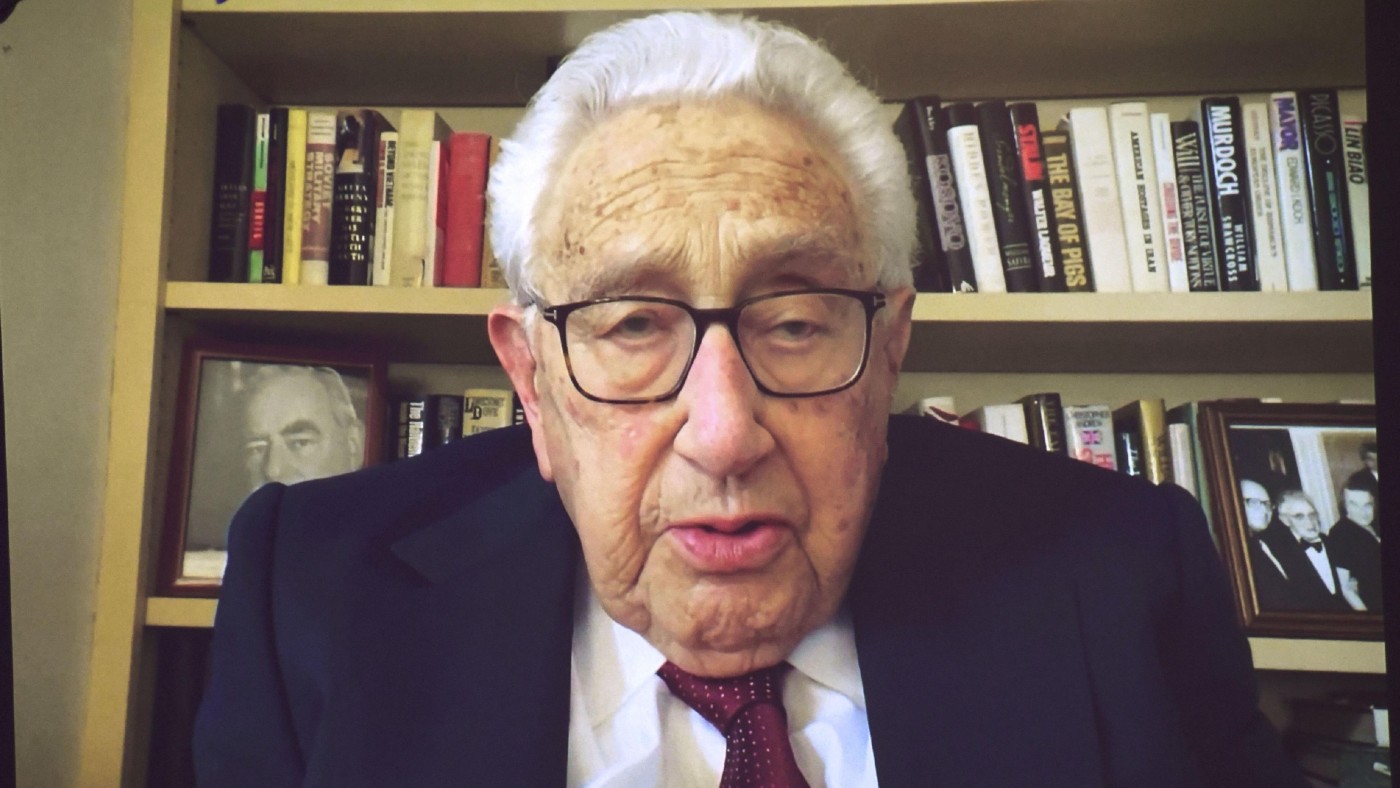Is Henry Kissinger right about Ukraine?
The US statesman made a controversial speech at a virtual Davos appearance last week

A free daily email with the biggest news stories of the day – and the best features from TheWeek.com
You are now subscribed
Your newsletter sign-up was successful
He may be 99 years old, said Tom Nichols in The Atlantic, but Henry Kissinger “still has it in him to issue a foreign-policy take that infuriates a lot of people”. In a virtual appearance at the Davos World Economic Forum last week, the US statesman who tried to negotiate an end to the Vietnam War offered his advice to the Ukrainian government. It was time, he said, that Kyiv “showed wisdom” in its brave battle with Russia, and started to think about trading territory for peace.
He advocated a settlement based on the “status quo ante” – in which Moscow ceded recent gains, but secured formal ownership of the territory in Crimea and the Donbas that it seized in 2014.
Ukraine’s president Volodymyr Zelensky was unimpressed. “You get the impression that Mr Kissinger doesn’t have 2022 on his calendar, but 1938,” he said, “and that he thinks he is talking to an audience not in Davos, but in Munich.”
The Week
Escape your echo chamber. Get the facts behind the news, plus analysis from multiple perspectives.

Sign up for The Week's Free Newsletters
From our morning news briefing to a weekly Good News Newsletter, get the best of The Week delivered directly to your inbox.
From our morning news briefing to a weekly Good News Newsletter, get the best of The Week delivered directly to your inbox.
Kissinger isn’t alone in promoting this outdated form of realpolitik, said David Aaronovitch in The Times. In a recent editorial, the New York Times also suggested Kyiv should be prepared to make “painful territorial” sacrifices to end the war. The Ukrainians have “fought the school bully to a standstill, refusing to hand over their pocket money”. But it seems that if they now hand over half of it, that will make him go away and resolve the situation. “This, apparently, is ‘realism’.”
It’s nonsense: any perceived success will only encourage Vladimir Putin’s aggression, said Robert Tombs in The Daily Telegraph. But it’s worth nothing that a deal that liberated Ukraine’s coast – and left Putin with nothing to show for his latest “devastating war” – would be a clear “defeat”.
Hours after Kissinger’s speech, another nonagenarian – the financier George Soros, 91 – offered a starkly contrasting view, said Walter Russell Mead in The Wall Street Journal. He warned that victory against Russia was necessary to “save civilisation”.
Which of them is right is anybody’s guess. The leaders who tried to appease Hitler “made very Kissingerian arguments about the need to respect German national interests”. But the disastrous Iraq War was the product of “Sorosian arguments” about fighting for democratic values.
A free daily email with the biggest news stories of the day – and the best features from TheWeek.com
“More often than not, the Realists are correct,” said David Horsey in The Seattle Times, but they can be blinded by their cynicism. In the 1970s, Kissinger predicted that the Cold War could last another century, having failed to foresee the collapse of the Soviet Union. Perhaps events will surprise him again. Either way, it’s “too early to tell the Ukrainians to give up hope and compromise their independence”